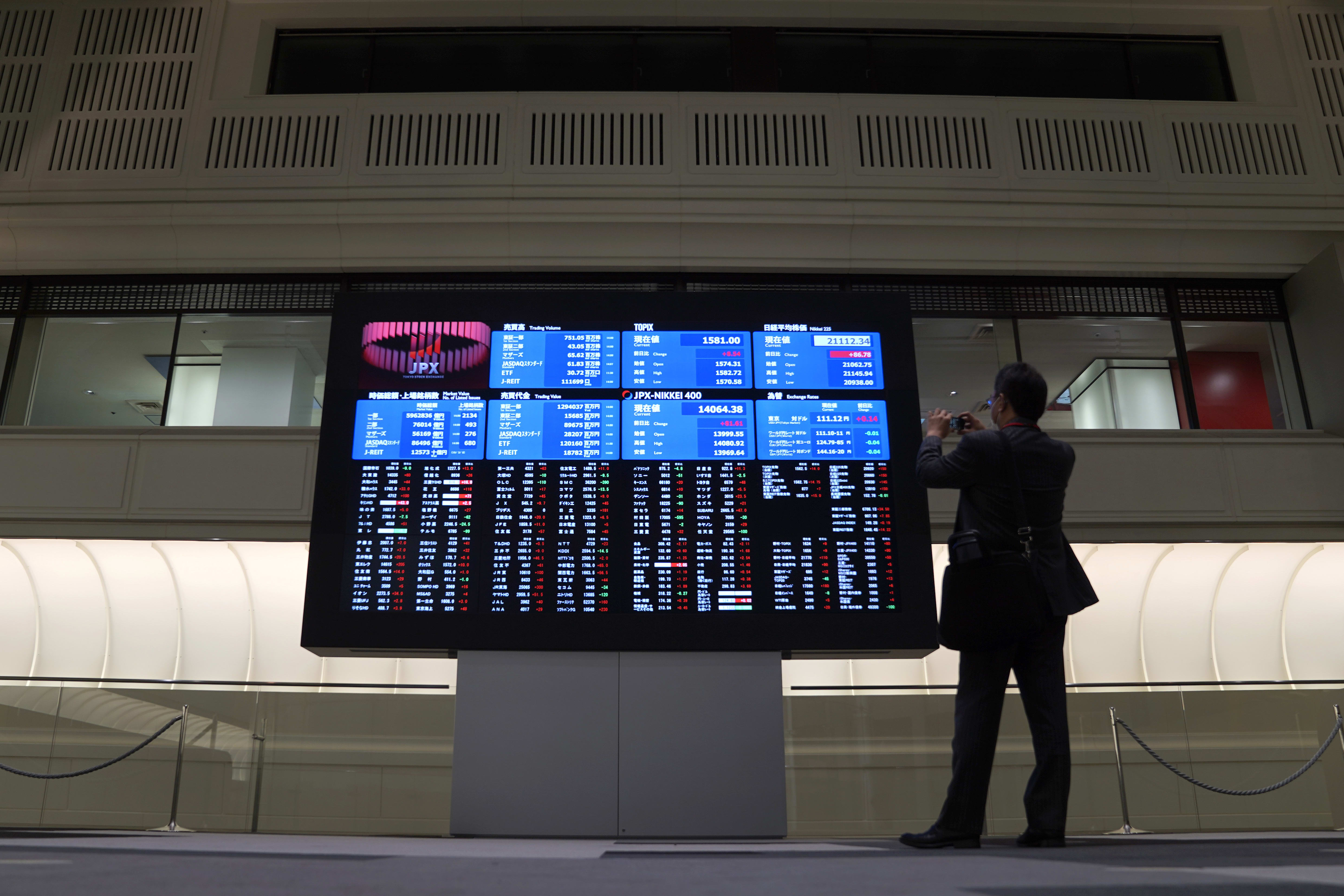
SINGAPORE — Stocks in Asia-Pacific traded higher Monday morning as investors watched for developments on U.S. President Donald Trump’s health after he tested positive for the coronavirus last week.
Stocks in Australia led gains among the region’s major markets, with the S&P/ASX 200 up about 2.1% as shares of the country’s major banks surged: Australia and New Zealand Banking Group gained 3.63%, Commonwealth Bank of Australia added 2.65%, Westpac rose 3.74% and National Australia Bank soared 3.26%.
Hong Kong’s Hang Seng index rose 1.57% in early trade following its return to trade from holidays last week, with shares of HSBC soaring more than 4%.
In Japan, the Nikkei 225 rose 1.28% in morning trade as the Topix index gained 1.83%. South Korea’s Kospi added 1.06%.
Overall, the MSCI Asia ex-Japan traded 1.01% higher.
Markets in China are closed on Monday for a holiday.
Investors likely continued to watch the situation surrounding Trump’s health, with questions remaining over his condition after his doctors announced Sunday that they had begun treating him with dexamethasone, a steroid recommended for severe cases of Covid-19. Still, the U.S. president’s physician, Dr. Sean Conley, said Sunday that his condition has improved and may be discharged as soon as Monday.
The U.S. president was transferred to the Walter Reed National Military Medical Center on Friday after he was given antiviral drug remdesivir.
Meanwhile, Trump’s Democratic challenger at the upcoming November presidential election, former Vice President Joe Biden, tested negative for the coronavirus — according to his campaign.
SMIC shares on watch
Hong Kong-listed shares of Semiconductor Manufacturing International Corporation (SMIC), China’s largest chipmaker, fell more than 2% in early trade after the firm announced Sunday it has undertaken “preliminary exchange” with the U.S. Bureau of Industry and Security on export restrictions.
“The Company is conducting assessments on the relevant impact of such export restrictions on the Company’s production and operation activities. As the supply period of certain equipment, accessories and raw materials exported from the U.S. will be extended or are subject to uncertainties, it may have potential material adverse effects on the Company’s future production and operations,” SMIC said in a filing to the Hong Kong exchange.
In September, shares of SMIC plunged after the U.S. government announced it was considering putting export restrictions on the company. Sanctions on the chipmaker hit at the heart of China’s tech ambitions at a time when tensions are rising between Beijing and Washington.
Currencies and oil
The U.S. dollar index, which tracks the greenback against a basket of its peers, was last at 93.763 after its decline last week from levels above 94.4.
The Japanese yen traded at 105.52 per dollar after strengthening sharply late last week to levels around 105 against the greenback. The Australian dollar changed hands at $0.7185 after its rise last week from levels below $0.707.
Oil prices were higher in the morning of Asian trading hours, with international benchmark Brent crude futures up 1.27% to $39.77 per barrel. U.S. crude futures also advanced 1.57% to $37.63 per barrel.
Source: CNBC
